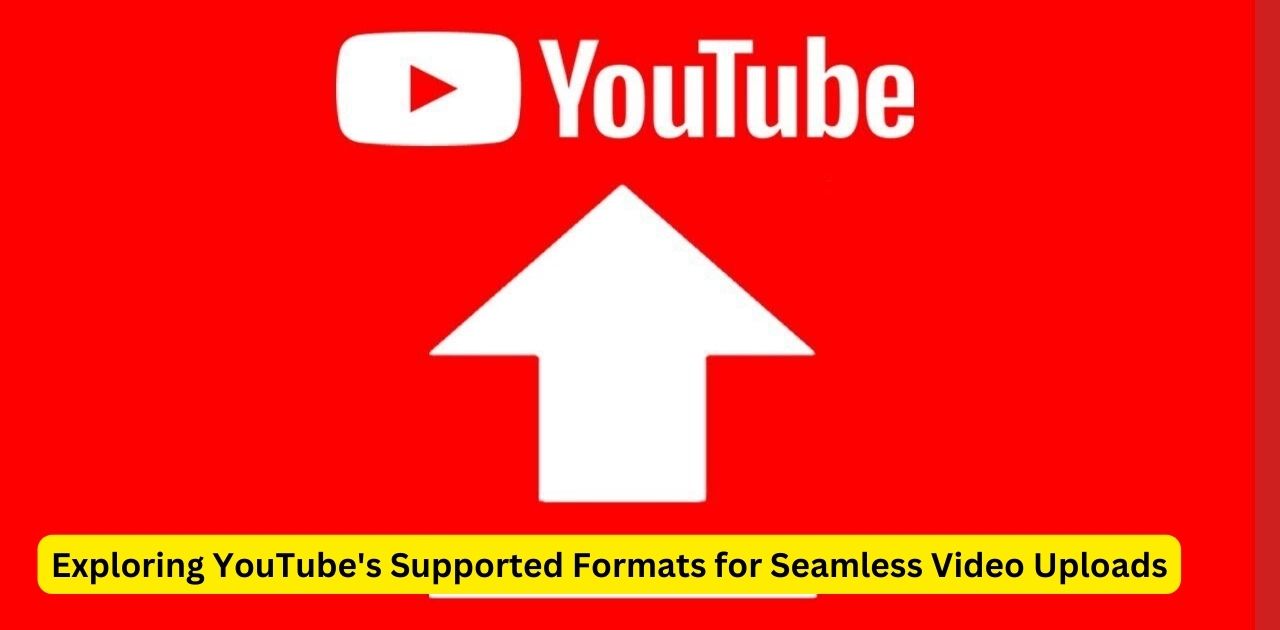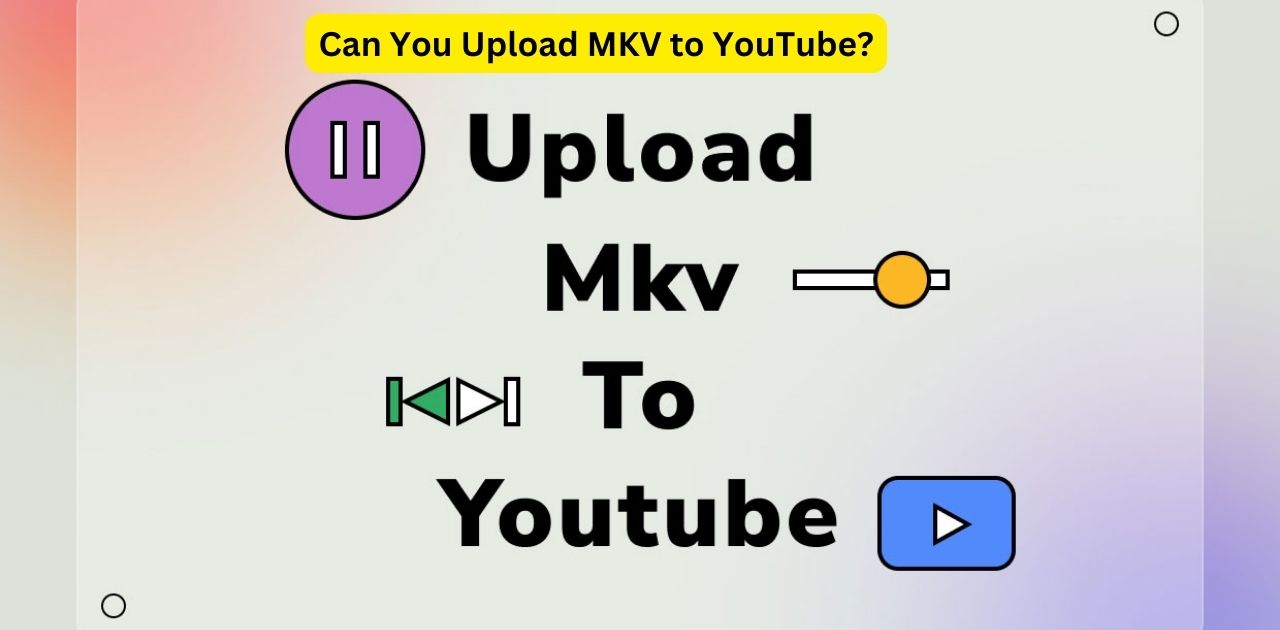In the ever-evolving world of digital media, content creators constantly seek answers to technical questions like “Can you upload MKV to YouTube?” This query is particularly relevant as MKV (Matroska Video) files are famous for storing vast multimedia content in a single file.
Understanding the intricacies of YouTube’s compatibility with various file formats is crucial for smooth, hassle-free video uploading.
What Challenges Do MKV Files Present for YouTube Uploads?
When considering the compatibility of MKV files with YouTube, it’s essential to recognize the technical hurdles. MKV, known for its flexibility in holding video, audio, images, and subtitle tracks in one file, can be a complex format for online platforms. While YouTube is a robust and versatile video-sharing platform, it prefers specific file formats over others for optimal streaming quality and user experience. The primary concern with MKV files is their compatibility with YouTube’s processing system, which may impact the upload success and video quality.
Another aspect to consider is the varied codecs used in MKV files. YouTube has specific requirements for video and audio codecs to ensure seamless streaming and compatibility across devices. MKV files often contain codecs that might not align with YouTube’s specifications, leading to potential issues during the upload process or rendering the video unplayable after upload.
How Can You Successfully Upload MKV Files to YouTube?
Despite the challenges, uploading MKV files to YouTube is feasible with the right approach. The key lies in understanding YouTube’s format preferences and preparing your MKV file accordingly. Converting the MKV file to a YouTube-friendly format, such as MP4, using reliable video conversion software is a straightforward solution. This conversion ensures that your video complies with YouTube’s codec requirements and maintains the quality of your original content.
Another vital step is to check your MKV file’s video and audio settings. Ensuring the resolution, frame rate, and bit rate align with YouTube’s recommended settings can significantly enhance the upload process’s success rate. This technical alignment facilitates smoother uploads and optimizes your video for better viewing quality on the platform.
Are There Any Benefits to Uploading MKV Files Directly to YouTube?
Though challenging, uploading MKV files directly to YouTube can have its advantages. MKV’s ability to hold high-quality video and audio tracks, subtitles, and metadata makes it an attractive option for content creators who prioritize rich multimedia experiences in their videos. MKV files can be a valuable asset for creators who deal with multilingual content or require high-resolution videos with complex audio.
However, weighing these benefits against the potential technical issues is crucial. Content creators must consider their audience’s viewing experience, ensuring the video’s format does not hinder accessibility or playback quality. Balancing the technical advantages of MKV files with YouTube’s compatibility requirements is critical to a successful upload.
What Are the Best Practices for Uploading Videos to YouTube?
Mastering the art of video uploads to YouTube involves more than just understanding file formats. It encompasses a holistic approach that includes optimizing video content for viewer engagement, adhering to YouTube’s guidelines, and utilizing the platform’s features to enhance your video’s reach. Best practices include:
- Using descriptive titles, tags, and descriptions.
- Incorporating effective SEO strategies.
- Engaging with your audience through comments and community posts.
Keeping abreast of YouTube’s evolving algorithms and features can significantly benefit content creators. Regular updates to YouTube’s policies and functionalities mean that strategies for video optimization also need to grow. Staying informed and adaptable is crucial for maintaining relevance and success on the platform.
Exploring YouTube’s Supported Formats for Seamless Video Uploads

Understanding YouTube’s supported formats is crucial for a hassle-free upload experience. While MKV files might pose challenges, YouTube officially supports various formats like MP4, AVI, MOV, and FLV.
These formats are preferred due to their broad compatibility and efficient compression, which ensures quality videos with manageable file sizes. For content creators, knowing these preferred formats can save time and avoid the need for file conversions. It’s also beneficial to familiarize oneself with YouTube’s detailed guidelines on video formats, resolutions, and codecs to ensure your content meets the platform’s standards for quality and compatibility.
Enhancing Viewer Experience through Optimal Video Formatting on YouTube
The format of your video can significantly impact the viewer’s experience on YouTube. Choosing the correct format affects the upload process and determines how viewers interact with your content.
High-resolution videos in compatible formats offer better clarity and viewer engagement, especially on various devices and internet speeds. Additionally, considering aspects like aspect ratio, frame rate, and bit rate can enhance the video’s visual appeal. Content creators should aim to strike a balance between high-quality content and YouTube’s optimization requirements to ensure their videos are accessible and enjoyable to a broad audience.
FAQ”s For Can You Upload MKV to YouTube?
Is MKV or MP4 better for YouTube?
- MP4 is generally better for YouTube due to its wider compatibility and efficient compression, which aligns well with YouTube’s format preferences.
Why does YouTube not support MKV?
- YouTube needs more support for MKV due to its complex structure and codec variability, which can challenge consistent streaming and compatibility.
Is MKV royalty-free?
- Yes, MKV is a royalty-free format, meaning it doesn’t require license fees for its use or distribution.
Can I convert MKV to MP4?
- Yes, converting MKV to MP4 is a common practice and is perfectly acceptable, as it often makes videos more compatible with various platforms, including YouTube.
Conclusion, For Can You Upload MKV to YouTube?
In addressing “Can you upload MKV to YouTube,” we’ve navigated the complexities of file formats and platform compatibilities. While MKV files present particular challenges, successful uploads are entirely possible with the proper knowledge and tools.
Balancing the technical aspects with a strategic approach to content creation and audience engagement is critical. Embracing this comprehensive strategy enables creators to not only successfully upload their videos but also thrive in the dynamic world of YouTube content creation.








